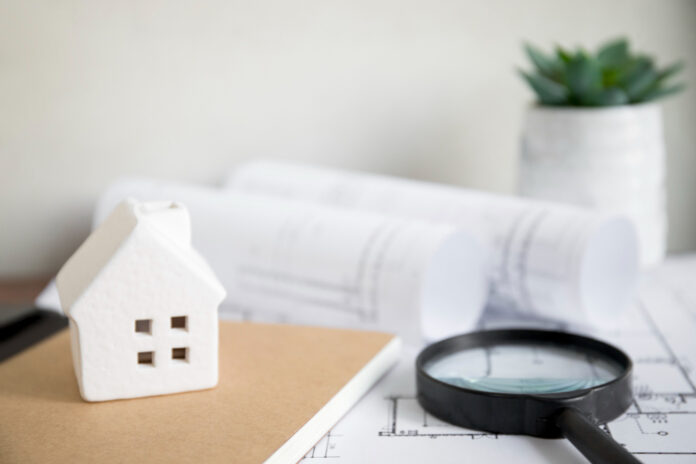A comprehensive property wellness check is essential for maintaining the vitality and longevity of your home. From structural integrity to indoor air quality, various factors contribute to the overall health and safety of your living space. In this guide, we’ll explore eight key aspects of a property wellness check to help you ensure your home remains a safe, comfortable, and healthy environment for you and your family.
Assessing Structural Strength: Foundation to Roof Inspection
When it comes to assessing the structural strength of your home, a thorough inspection from a qualified home inspector Montgomery AL, is paramount. Starting from the foundation, inspectors will evaluate the integrity of the structure, looking for signs of settlement, cracks, or moisture intrusion. They will also examine the framing, walls, and roof to identify any structural deficiencies that may compromise the stability and safety of the home.
By addressing structural issues early on, homeowners can prevent further damage and ensure the long-term durability of their property. Regular inspections and maintenance are essential for preserving the structural integrity of your home and protecting your investment.
Detecting Hidden Hazards: Mold, Asbestos, and Radon
Hidden hazards such as mold, asbestos, and radon pose significant risks to the health and well-being of occupants. During a property wellness check, inspectors will conduct tests and assessments to detect the presence of these hazards and evaluate their potential impact on indoor air quality.
Mold inspections involve identifying areas of moisture intrusion and conducting air and surface sampling to detect mold spores. Similarly, asbestos testing may be necessary for homes built before the 1980s to identify asbestos-containing materials such as insulation, flooring, or ceiling tiles. Additionally, radon testing measures the concentration of radon gas in the home, which can seep in through the soil and pose a risk of lung cancer.
Addressing these hidden hazards promptly is essential for mitigating health risks and creating a safe living environment for you and your family.
Securing Safety Standards: Electrical and Fire Risk Assessment
Electrical and fire hazards pose serious risks to homeowners, requiring careful assessment and mitigation measures. During a property wellness check, inspectors will evaluate the electrical system for signs of wear, damage, or code violations. This includes inspecting wiring, outlets, switches, and the electrical panel to ensure they meet safety standards and function properly.
Fire risk assessments involve identifying potential fire hazards such as overloaded circuits, faulty wiring, or flammable materials. Inspectors will also check the functionality of smoke detectors and fire extinguishers to ensure they are operational and up to date.
By addressing electrical and fire hazards proactively, homeowners can reduce the risk of electrical fires and create a safer living environment for their families.
Preserving Plumbing Integrity: Leaks, Corrosion, and Water Quality
Maintaining the integrity of your home’s plumbing system is essential for preventing water damage, leaks, and water quality issues. During a property wellness check, inspectors will inspect plumbing fixtures, pipes, and water heaters for signs of leaks, corrosion, or deterioration.
Leaks can lead to water damage, mold growth, and structural issues if left untreated. Inspectors will also evaluate water quality, checking for contaminants such as lead, bacteria, or sediment that may affect the health and safety of occupants.
Addressing plumbing issues promptly and ensuring water quality standards are met is crucial for preserving the integrity of your home and protecting the health of your family.
Optimizing Energy Efficiency: Insulation, HVAC, and Windows
Improving energy efficiency is not only environmentally responsible but can also save homeowners money on utility bills. During a property wellness check, inspectors will assess the insulation levels, HVAC systems, and windows to identify opportunities for improving energy efficiency.
Insufficient insulation can result in heat loss, drafts, and higher energy bills. Inspectors will evaluate insulation levels in the attic, walls, and floors and recommend upgrades or additions as needed. Additionally, HVAC systems will be inspected for efficiency, proper sizing, and condition, with recommendations for maintenance or upgrades to improve performance.
Windows play a significant role in energy efficiency, with older or poorly sealed windows allowing heat to escape in winter and cool air to seep in during summer. Inspectors will evaluate window condition, seals, and insulation and recommend repairs or replacements to optimize energy efficiency.
By optimizing energy efficiency, homeowners can reduce their environmental footprint and enjoy a more comfortable and cost-effective living environment.
Ensuring Exterior Integrity: Siding, Roofing, and Drainage
The exterior of your home plays a crucial role in protecting against the elements and preserving structural integrity. During a property wellness check, inspectors will assess the condition of siding, roofing, and drainage systems to identify vulnerabilities and potential issues.
Siding protects the home from moisture, pests, and weather damage, so it’s essential to ensure it is intact and properly sealed. Inspectors will also evaluate the roofing system for signs of wear, damage, or leaks, recommending repairs or replacements as needed to prevent water intrusion and structural damage.
Proper drainage is essential for directing water away from the home and preventing water damage to the foundation and basement. Inspectors will assess the effectiveness of gutters, downspouts, and grading to ensure water is diverted away from the home’s foundation.
By maintaining the exterior integrity of your home, you can protect against water damage, pests, and structural issues, ensuring the longevity and durability of your property.
Safeguarding Indoor Air Quality: Ventilation and Filtration
Indoor air quality plays a significant role in the health and comfort of occupants, making it essential to safeguard against pollutants and allergens. During a property wellness check, inspectors will assess ventilation systems, air quality, and filtration to ensure optimal indoor air quality.
Proper ventilation is crucial for removing stale air, moisture, and indoor pollutants, such as volatile organic compounds (VOCs) and allergens. Inspectors will evaluate ventilation systems, including exhaust fans, air ducts, and HVAC filters, to ensure they are functioning properly and providing adequate airflow.
Air quality testing may also be conducted to detect pollutants such as mold spores, radon gas, or volatile chemicals. Inspectors will recommend mitigation measures to improve air quality and create a healthier living environment for occupants.
By safeguarding indoor air quality, homeowners can reduce the risk of respiratory issues, allergies, and other health problems, creating a safer and more comfortable home environment.
Addressing Appliance Reliability: Inspection and Maintenance
Home appliances play a significant role in daily life, making it essential to ensure they are reliable, safe, and efficient. During a property wellness check, inspectors will assess the condition, functionality, and safety of appliances such as refrigerators, ovens, dishwashers, and washing machines.
Inspectors will check for signs of wear, damage, or malfunction and recommend repairs or replacements as needed to ensure appliance reliability and safety. Additionally, they will provide recommendations for routine maintenance tasks to prolong the lifespan of appliances and prevent breakdowns.
By addressing appliance reliability issues proactively, homeowners can reduce the risk of costly repairs, improve energy efficiency, and ensure the smooth functioning of their home appliances.
Conclusion
A property wellness check is essential for ensuring the vitality, safety, and longevity of your home. By assessing key aspects such as structural integrity, hidden hazards, safety standards, and energy efficiency, homeowners can identify and address potential issues before they escalate into costly repairs or health hazards. Investing in a comprehensive property wellness check not only protects your investment but also provides



